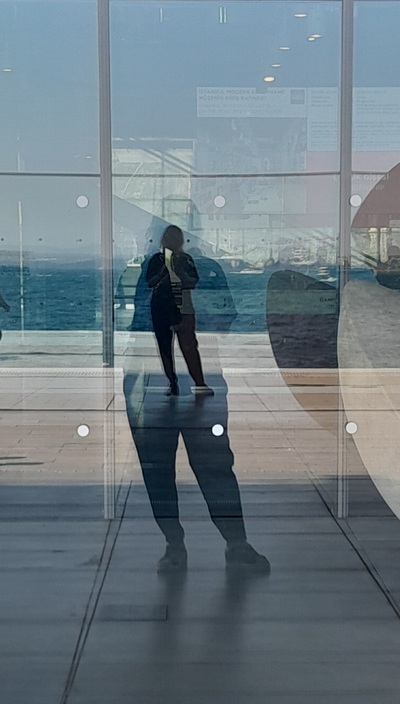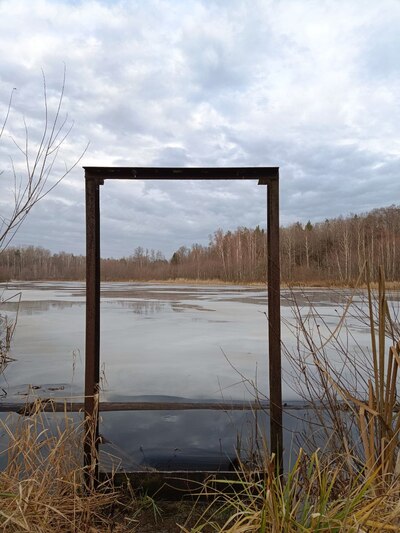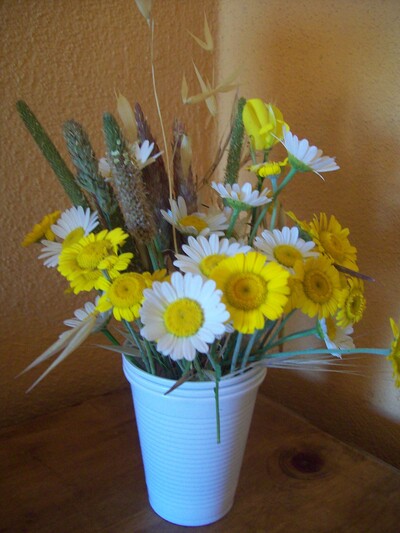Salvatore. That was the name of one of the characters in Umberto Eco’s The Name of the Rose. The only character I still rememeber, after all these years since I first read this book (somewhere in high school). Salvatore was an estranged one, an eccentric one, suffering from some illness but that is not what made him unforgettable. Salvatore spoke multiple languages but he did it in the most unusual way because, for some reason, probably related to his illness, he spoke them all at once, mixing them in a discourse or switching even mid-sentence.
Back then, as a kid, I found it frightening that this poor man was excluded and that, really, he was never fully to be understood by his brethren. Unless someone spoke exactly the same combination of languages and could navigate around this mumble-jumble. Which, of course, very few did. Today, when I watch the film or when I simply find myself switching between languages, I am laughing. I am on my way to becoming a Salvatore.
Facts
My everyday (and my very un-glamorous) life takes place in four languages. If I had been a Netflix film, my list of audio and subtitles would be a list of (in the alphabetical order): English, Polish, Portuguese and Russian. This is how I communicate, how I read and write. These are my conversations, my notes, my books, films, TV programmes, TV series and music.
How to get there? By accident.
First and foremost, I was not brought up as a bilingual or a multinlingual child. I did not grow up in a minority community or in a migrant family. These four languages just happened and these four stayed. Just like that.
I am Polish and until I was about 12, I did not know any foreign languages. Polish is, by all accounts, my mother tongue, the language of my parents, my brother, my family and my Polish friends.
When I turned 12, like all my peers, I started to learn a foreign language at school and that for me was Russian. I loved it because it was like the door to another world, similar but different to my mother tongue and unusual with its own magical alphabet. It lasted four years and then it stopped, abruptly because my high school did not even have Russian on offer. I stopped and, naturally, I forgot.
Or, to be more precise, I paused and I hid it somewhere, in the Room of Requirement of my brain, for good twenty years, and when I arrived in Moscow to teach and to live, this is where I retrieved it from. Slowly. Today I do communicate, effectively, and, with time, I even managed to improve my writing and reading, which, at first, due to the lack of practice, were atrocious. I use Russian at work and not at work and I would love to be able to know what my real level is. Eventually, I will make myself sit some exam, just to find out or to prove that I rock it. At the moment, I suppose I can pat myself on the shoulder for reading fiction and non-fiction (albeit it takes me a while to go through a book) and to have successfully dealt with a variety of linguistic challenges of the higher level such as: filling in random forms and questionnaires (tick), listening to serious and specific lectures (tick), presenting a workshop (tick), producing a long piece of writing for a competition (tick), having a conversation with an angry nurse and making her smile (tick), writing a poem (tick)…
English entered the stage when I was relatively old already, but, if the theory of the Critical Period Hypothesis is true, I must have started learning it before the puberty hit because my pronunciation does not bear any Polish traces. Not that I ever made an effort to obtain the perfect RP (at the time, long long time ago that was not even an issue, that you had to or that you didn’t need to). When I first went to the UK at the age of 25, I could already speak it well enough (CAE in my pocket) but, still, the multitude of accents and the richness did knock me off my feet upon arrival. I recovered. Then I actually did live and work in London, got my exams and got my degrees. And, since I am a teacher and a trainer, English is work but it is a lot more than that, too.
And there is Portuguese, too, the Brazilian Portuguese, straight from Sao Paulo. I bumped into it in London first and, after a lot of exposure, I started to pick my way through it. Literally. As a result, my Portuguese is a wonderful example of a linguistic mess. There was a time when it was Upper-Intermediate or even Advanced, in some areas at least, because I used it a lot. I did not have a choice. Some of my friends or their parents or families did not speak English so we did communicate in Portuguese. I never had a proper coursebook because I quickly got out of the beginner range and I’ve never found a book for the more advanced students. Out of some kind of despair, I started to read and watch what I could get hold of, the regular TV programmes, stand-up, journals, newspapers, poetry, fiction…It was not easy but, again, I had no choice. I used to have three teachers, my friends, here in Moscow, who helped me iron out some creases, work on accuracy and make sure that I stay afloat, as regards communication. Today, I have an accent from Sao Paulo (apparently), I know some colloquial phrases from the higher shelves, I am relatively fluent but, at the same time, I can slip (and fall on my face) on some banana skin of the A2 level grammar.
L1 + L2 + L3 + L4
It is a real temptation to try to label all these languages, to order them and to rank them. Alas, that does not seem to be feasible. Because, for example, there is no doubt – I was brought up in Polish and these are my factory settings, but does it still deserve to be my number 1 if the communication that I carry out in Polish takes up about 10% of my daily interaction (on a good day). I have no idea how to go about that.
I know that I have a dream for each of the languages: to improve my Russian and to make it top-notch so that I don’t struggle with declination and with the register…to have more opportunities to speak Portuguese on daily basis…to get to read and write more in Polish because I sometimes wake up with a thought that I am losing it…And to make time to write everything that I would love to write in English. And to have more time to read in all of these languages.
One of my hobbies, probably somehow related to the fact that I am a teacher and a researcher (small-scale) is stepping out of the picture and looking at how the adult brain deals with this combination, the joys and the hiccups of the everyday. Here are some of them.
The adventures of a brain
- I use all four languages every day.
- Most of the time, it means dealing with two of them at a time. The office and the school is English and Russian. The home time is Russian and English or Polish and English. Or any other combination. It seems that the way we are connected to the world nowadays really does promote the multilingual life or, at least, makes it easier. Not only have I got the access to the media in all these languages but, also, since communicating via different messengers is a part of the everyday life, it is perfectly normal to be typing up in Portuguese in Telegram while watching a game in Russian on TV. Or going through the lesson plans in English while in the middle of the conversation in Polish with the family…Using one of the languages does not exclude the use of the other one, not completely.
- Most of the time, the brain doesn’t mind and it does get better at managing it, it adjusts. In the past, it used to be more difficult to manage all four and to switch from one to the other. An intermission of a kind was necessary, a minute of silence after I stopped speaking one and before I started speaking the other. For the neurons to pause, to reorganise and to re-start. Luckily, practice makes perfect and it is much easier. Especially when I am jumping in-between English and Russian or between English and Polish or Polish and Russian because these shifts are more frequent.
- The most interesting case of managing all four, all at once, was during a volleyball game between Poland and Brazil, held in Poland, watched on one of the Russian TV channels and with my English-speaking friends. There were times when I was hit by three different langauges at a time and the combination changed from minute to minute. It was a ride, but I did manage.
- In the past, when I used to be really tired and not having slept enough, the languages would disappear. They would switch off, gradually, starting from the most ‘distant’ one, as if the brain wanted to shut down to save the energy and to focus on the most familiar one. For example, the listening skills in Portuguese would still be there but the brain would be too tired to produce, in Portuguese.
- Today, in such situations, the brain is only sending signals asking for silence. There are days when I simply cannot bear listening to music with lyrics, in any language. It is too annoying and this is when Chopin or Stravinsky come to the rescue. Or Miles Davis.
- I love the fact that whenever possible, I can go back and forth between the languages. I can do my small-scale Salvatore. Sometimes, I have to because I might not know a word in Russian and then I switch back to English to signal to my speaker that I need assistance. Sometimes, I resort to that simply because the word does not have its counterpart in the other langauge or that the original version is simply better…If my speakers know both languages, then I do not bother, simply.
- I have sneakily used languages to guarantee the privacy of a conversation, going for the one that is least familiar to the other people.
- I have used Portuguese in class, too, with my teens group. They don’t speak it but it works when I need to remind them that from 18:15 until 19:45 we are supposed to communicate in English, because that is the language that we share.
- There are topics typical for a language. For a very long time I could talk about religion and volleyball only in Polish or in English. It took some time to get the brain used to do it in Russian, for example. I would choose Russian or English to talk about football. The methodology of ESL / EFL does not exist in any other language but English. The same goes for grammar and language awareness. The metalanguage in Russian and in Polish are beyond reach, at this point.
- At the same time, my cooking vocabulary is top notch in all four languages. I follow different cookery channels and I cook food from different countries but I never bother to translate. My cookery notebook reflects my brain and each recipe always stays in the original version, whatever that might be.
- I am greedy for the beautiful language. I sometimes echo some random phrases trying to remember them and, ideally, I would just pause the world to give myself a moment to write them down, at the cinema, at the doctor’s, in a shop, in a conversation with friends…I have had people look at me in a funny way, when, in the middle of a discourse, I chip in with my ‘oh, what a beautiful phrase!’
- Before an important conversation, especially in Russian, I like to think about what I am going to say and how. I sometimes even rehearse it or write down the key verbs. Basically, I am worried that people will not take me seriously because of the mistakes I make or because I am not as fluent as a native speaker would be. That they might dismiss and disregard the message focusing more on how (or ‘how inexpertly’) I am trying to get it across. Not that it stops me from communicating altogether but I sometimes feel like I am going into a battle.
- That is also the reason why I like to set the context and to activate the schemata in the real life situations, in the very same way I would do in my own classes. ‘I don’t speak very well but I need to change this reservation. Please bear with me.’ Or ‘I got really upset with this situation.’ Or ‘I am going to ask you a lot of questions.’
- I do use swear words, in all four languages, instinctively now going for the one that the world around me is least likely to understand and to be offended by. At the same time, when I am really, really, really angry, to the core, I stick to my mother tongue.
- My diaries are in English. So is this blog.
- Over the years, I learnt other languages, too. German – because I had to, at university. I dealt with it as with any other subject: learnt, passed the exam, forgot. I had French at school for four years and then I returned to it on at least two occassions. It was fun, it was beautiful but it did not stick. I tried to teach myself Swedish because it was odd and random and funny. It did not last, there was no real exposure and no real need. Swedish, however, helped me realise that there is one more element that I personally need to get involved with a language and it is the emotional connection. It works on two levels. First of all, each of the languages I speak is the language that I actually use, be it for family, personal or professional reasons. I know that there are people living abroad and not speaking the language but I cannot put myself in such a situation. I like to be a part of the place, linguistically, too. Second of all, with all four languages that I do have there was a time when I really did fall in love with them, with their grammar, texture, melody, weirdness. In English it was the moment when I got hold of the Oscar Wilde play in the original version, I do remember the awe I was in. In Portuguese, it was the first song I did listen to consciously, the repeated verb ‘sorrir’ (smile) and how I learned the word for star (‘estrela’) from a four-year-old boy. In Russian, I remember the joy mixed with aprehension when I went (slowly, very slowly) through my first novel and my favourite novel, Master and Margarita. Perhaps that is exactly what happens with your mother tongue that you need to grow up to love it consciously. For me, it was the second reading of our national epic, Pan Tadeusz and, then, a short while later, falling into the stories written and drawn by Bruno Schultz.
- Spanish is an interesting case. I lived in Navarra for less than a year, I did learn the language but when I did, it was already after I had done Portuguese. For that reason, I could never fall in love with it and, no matter how hard I tried, instead of ‘yo‘ I always produced ‘eu‘ (‘I‘ in Spanish and Portuguese respectively) and then I gave up and used only the verb form (which is almost always the same in both languages). Until recently, I thought that Spanish for me was the lost child (‘Are you sure it even happened?’), the one that I gave up on and almost blocked out. I thought. But, somehow, I discovered that now I am still fine watching Almodovar without subtitles, I love Javier Bardem for a reason (and Penelope and Antonio, who, by the way should only speak Spanish in films) and when the Spanish songs come up in my player (and there are surprisingly many of them there), I sing along.
- I try to read books in the original version. I love having this privilege. Translated from the original, they get on my nerves, too, especially when the translation is really bad and I am reading in one langauge but I can hear the original. The good translations are an adventure. And I love reading my favourite books in all the langauges available.
- I have had debates, discussions and fights in all four languages here. I have cried in all four languages on the list, happy tears, angry tears and sad, too. I have been heard and I have said ‘I love you‘, ‘eu te amo‘, ‘я тебя люблю‘ and ‘kocham cię‘.
- I’d rather not dream at all but I have had dreams in English, in Polish and in, to quote my brother, from a long time ago, ‘the ones that I don’t understand’
Instead of a coda…
…I thought I could do a bit of a Salvatore here.
A lingua portuguesa e para mim são as pessoas, os amigos proprios e a gente da cidade grande com que eu mim apaixhonei mesmo ao primerio olhar e ao primeiro andar. Todos eles eram meus professores queridos e até este dia eu lembro historias como eu aprendi certaz palavras ou de quem ouvi certas musicas.
Num livro de Ray Bradbury tem a historia de um general. Ele é muito velho, so fica na cama, mas, quando pode, escondido, ele liga para um amigo no Mexico City, pede para ele abrir a janela e fica ai, num orelhão, ouvido de todos os sons da cidade amada, no outro lado de oceano. Sempre imaginei que este general sou eu, no futuro, so que a cidade minha é differente.
Eu fico com saudade mas tambem sei que ‘Ela vai voltar’.
Есть дни такие, когда я вообще супергерой и иду вперёд, и не могу остановиться, говорю и пишу, всемогущая. Но есть и тоже такие, когда ели-ели, когда не попадаю в суффиксы и когда люди переспрашивают, а то непонятно что говорю. Очень хочу говорить красиво, но тоже знаю хорошо, что никуда не спрячу ни этого произношения (после двух слов угадывают что я полячка. Обидно даже!) и этой странной структуры фразы, в которую иногда попадаю. Как говорится – я знаю, что я катастрофа, но я стараюсь. И какое это счастье что можно получать удовольствие просто говоря. Это для меня русский язык (и еще Москва, Мельников, Булгаков, футболь, и всё мое образовательные дети. И зяблики).
I jeszcze mój polski język, taki piękny, taki dziwny. Ale mój. Kiedyś pięknie pisałam też po polsku. Tęsknię za moimi książkami, tymi wszystkimi które są daleko i za klawiaturą, na której byłyby wszystkie polskie znaczki. Na pociechę mam tutaj polskie ksiażki audio i raz do roku wielkie święto, festiwal polskich filmów, kiedy mogę się podzielić Polską z bliskimi mi ludźmi.
Niech będzie wiersz, taki z ‘dawno, dawno temu’, kiedy mialam lat naście. Edward Stachura
Ruszaj się, Bruno, idziemy na piwo;
Niechybnie brakuje tam nas!
Od stania w miejscu niejeden już zginął,
Niejeden zginął już kwiat!
P.S. If there is anyone out there who would like to share their experience with multilingual lives, please use the comments box. I would love to hear from you!




